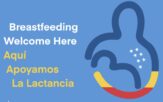This list is assembled by medical professionals that live and work in North Carolina. We would love your input. Do you find the following resources helpful? What other resource might be helpful? Please email durham@breastfeedingcommunities.org and let us know what you think.
Health care within the community must be breastfeeding friendly if a community is to support breastfeeding. Research confirms that comprehensive breastfeeding support in prenatal, maternity, and postnatal care results in improved breastfeeding success.
Evidence-Based Support/Education
- Review the recommendations from the Academy of Breastfeeding Medicine for a Breastfeeding-Friendly Physician’s Office
- Adventures in Lactation-ONline Active Content by Jenny Jensen, NCLCA Chair. Built by Norma O. Escobar.
- CDC’s new Physician Education and Training to Support Breastfeeding web page has just been published. Feel free to share/distribute to your partners.
- Breastfeeding University was created with busy health care providers in mind. Each 20-30 minute module provides evidence-based, up-to-date information from an interdisciplinary team of physicians, nurses, lactation consultants, public health professionals, and/or La Leche League leaders. The four interactive modules will help to establish a working knowledge of how to support families to meet their breastfeeding goals. Healthcare Settings
- Breastfeeding, Family Physicians Supporting from American Academy of Family Physicians
- Dr. Milk (Doctor M.others I.nterested in L.actation K.nowledge) provides evidence-based support and education for physician women to reach their breastfeeding goals and apply that knowledge to their medical practice.
- How To Have a Breastfeeding Friendly Practice
- Lactation Education Resources – Home
- La Leche League Webinars: We recommend IMPACT OF BIRTH PRACTICES ON THE BREASTFEEDING MOTHER-BABY DYAD; DONOR MILK BANKING, TONGUE-TIE, LIP-TIE, TETHERED ORAL TISSUES (TOTS) AND INFANT FEEDING; USING CULTURAL AWARENESS AND CULTURAL HUMILITY IN BREASTFEEDING CONVERSATIONS; TORTICOLLIS AND JAW ASYMMETRY: STRATEGIES FOR ASSISTING AND COUNSELING THE BREASTFEEDING DYAD; WHEN BREAST ISN’T BEST: CHALLENGES AND OPPORTUNITIES FOR SEXUAL ABUSE SURVIVORS IN BREASTFEEDING; DIVORCE + BREASTFEEDING: LEGAL AND PRACTICAL CONSIDERATIONS; WHAT’S NEW IN POSTPARTUM DEPRESSION.
- Michigan Breastfeeding Network presents FREE Great Lakes Breastfeeding Webinars
- Protocols from the Academy of Breastfeeding Medicine
- Resources for Health Professionals from the American Academy of Pediatrics
- Ten Steps to Support Parents’ Choice to Breastfeed Their Baby
- Writing a Medical Office Sample Lactation Policy
Medications
- Drugs and Lactation Database, LactMed (National Center for Biotechnology Information, U.S. National Library of Medicine Book Shelf) The LactMed® database contains information on drugs and other chemicals to which breastfeeding mothers may be exposed. It includes information on the levels of such substances in breast milk and infant blood, and the possible adverse effects in the nursing infant. Suggested therapeutic alternatives to those drugs are provided, where appropriate. All data are derived from the scientific literature and fully referenced. A peer review panel reviews the data to assure scientific validity and currency.
- Infant Risk Center: Breastfeeding (Dr. Tom Hale’s site) Each year millions of pregnant and breastfeeding mothers use medications for an enormous variety of conditions and diseases. Many times – in fact most times – we may not know a lot about the use of these drugs in pregnancy or in breastfeeding. The InfantRisk Center is going to initiate a major program to discover the impact of using medications during pregnancy and during breastfeeding.
- Mother to Baby (meds during pregnancy and breastfeeding), a service of the non-profit Organization of Teratology Information Specialists, is dedicated to providing evidence-based information to mothers, health care professionals, and the general public about medications and other exposures during pregnancy and while breastfeeding. Talk directly to the experts behind the most up-to-date research.
- Mother to Baby‘s Print Outs for Doctors to give to families.
Handouts
- NCBC has created a number of PDF handouts available for download. We encourage you to download, print and distribute the texts below for use in your practice
- Breastfeeding and Sexual Abuse – Reference List
- Breastfeeding and the Abuse Survivor
- Breastfeeding and the Flu
- Breastfeeding and the Law
- Breastfeeding and the Return to Work
- Breastfeeding and Vitamin B12
- Breastfeeding and Vitamin D
- Breastfeeding in Public
- Breastfeeding Superiority
- Human Milk Storage
- Milk Expression
- North Carolina Pregnancy & Continuity of Care During COVID-19 Task Force Recommendations
- Postpartum Support – Breastfeeding Web Resources
Inducing Lactation and Relactation
- Sweetpeabreastfeeding.com (FOR PARENTS AND PROVIDERS) Includes general information and specific info for Breastfeeding Without Birthing “professional pack” to educate anyone working with parents who want to induce lactation or relactate.
- United States Breastfeeding Committee’s LGBTQIA+ Resources
- Using an At-Chest Supplementer
- Breastfeed Durham’s Tools for Medical Providers to Support Human Milk Feeding
Study
- The Journal of the American Heart Association published a study titled “Breastfeeding Is Associated With a Reduced Maternal Cardiovascular Risk: Systematic Review and Meta‐Analysis Involving Data From 8 Studies and 1 192 700 Parous Women.” The study systematically reviewed published evidence on the association of breastfeeding with maternal risk of cardiovascular disease (CVD) outcomes. The review found that women who breastfed had a lower risk of future cardiovascular disease, coronary heart disease, stroke, and fatal cardiovascular disease.
- Unseen, unheard: a qualitative analysis of women’s experiences of exclusively expressing breast milk | BMC Pregnancy and Childbirth
Please contact us with any feedback or questions.
